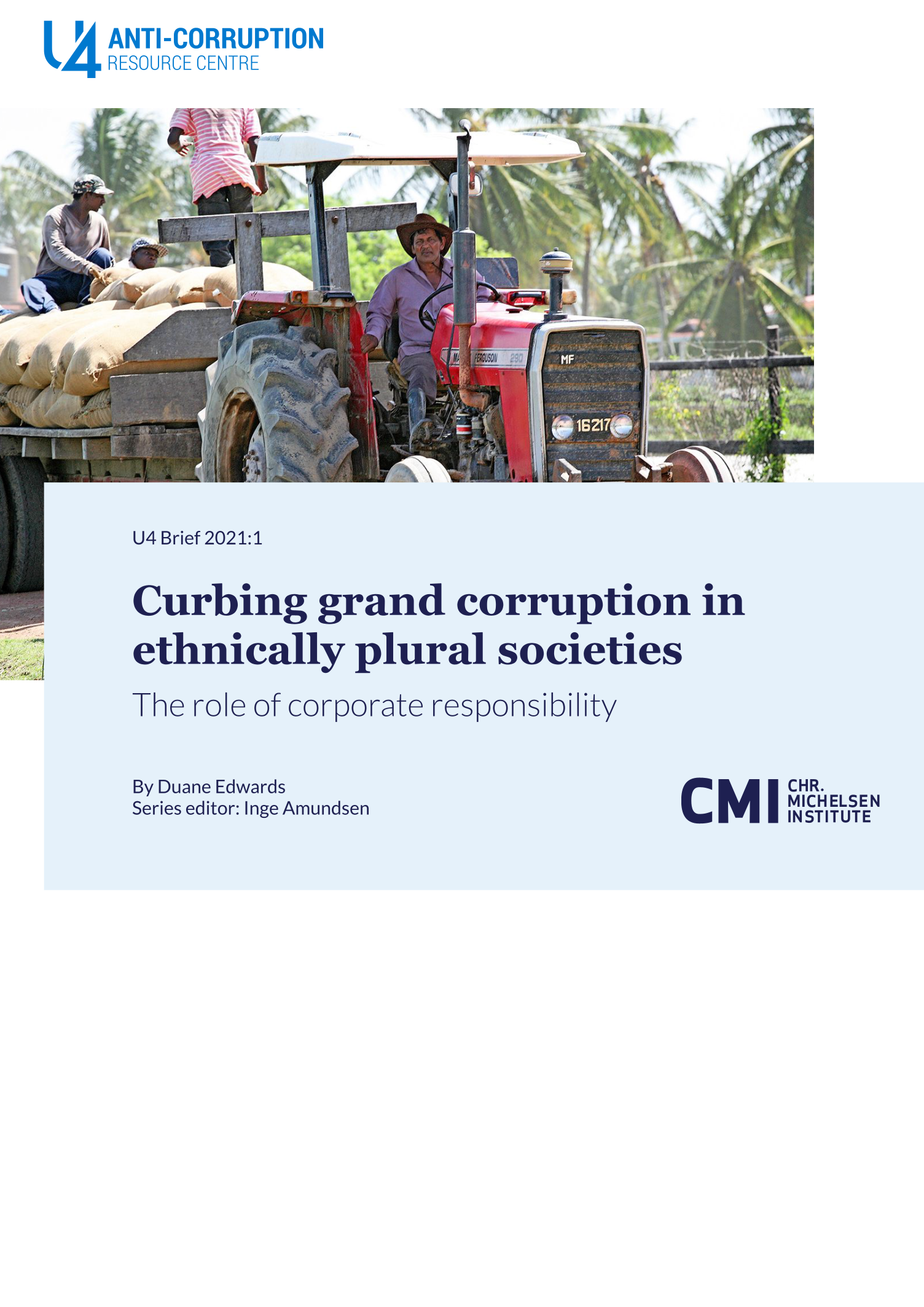Main points
- Small and medium-sized enterprises (SMEs) have a strategic role to play to contest corruption and ethnic clientelism, and a collective-action approach has the best potential to accomplish this goal.
- If SMEs are organised into formal associations, they can be the vehicles through which contestations and collaborations are successfully achieved. Formalisation would aid the development of SMEs, and could represent and articulate their combined interests.
- As formal associations, SMEs are in a position to educate, advocate, and collaborate to contribute to the reduction of corruption and the establishment of a fair and attractive business environment.
- SMEs can pressure larger firms and the state to adopt a more transparent and competitive procurement system, if they engage with other stakeholders to facilitate a conducive business atmosphere characterised by anti-corruption hypernorms. This increases the opportunities for them to successfully compete with larger firms.
- Forging alliances under the framework of a professional association means that SMEs could tackle collective-action problems by enforcing social and organisational norms that prohibit corruption. However, there remains the difficulty in ensuring its members embrace – and comply with – these norms, as there is the risk that individual firms might find they gain more from corruption.
- SMEs have more to gain and less to lose than the larger firms by drawing attention to and opposing instances of corruption – especially in public procurement. If they are persuaded that there are benefits from such actions, such as enhanced business opportunities and higher income, they will be more willing to be part of a collective movement against political corruption.
- While a low formality rate presents a hindrance to collective action by SMEs, it can also be considered as an opportunity. It is highly likely that SMEs will be driven into a survivalist mode because of the uncompetitive nature of their business environment and the concentration of large cash flows among a small number of favoured firms.



